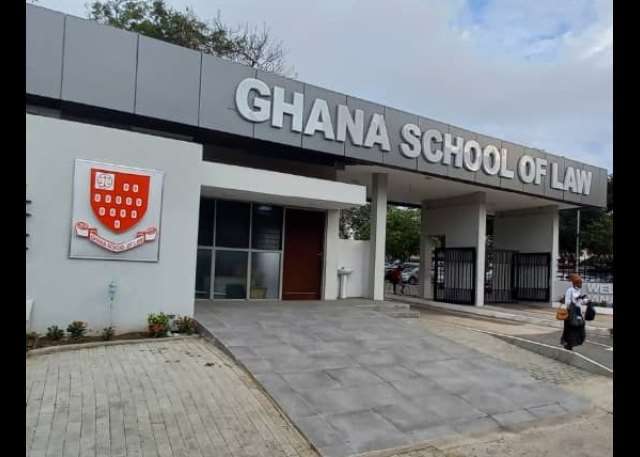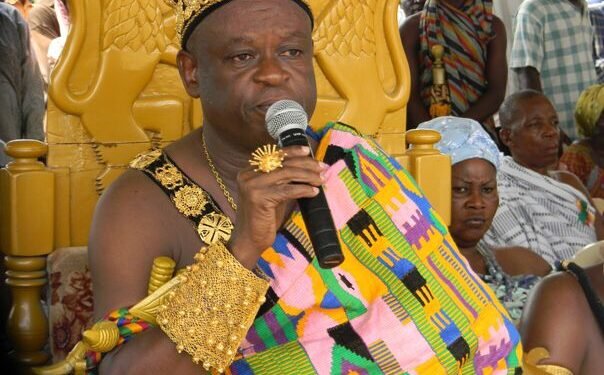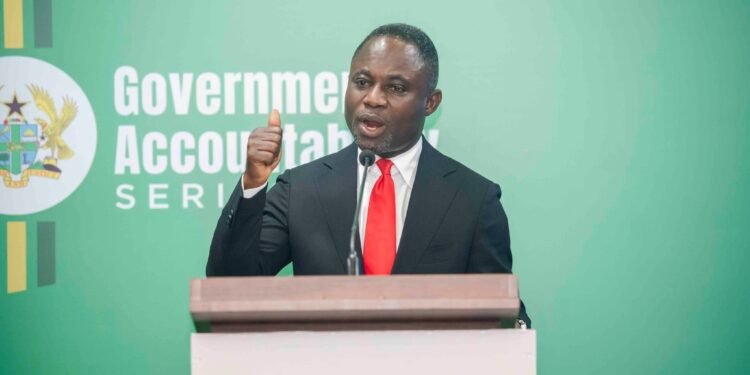Ghana’s legal education reform, spearheaded by the Attorney General, is entering a transformative phase, with sweeping changes aimed at dismantling the long-standing centralized control of lawyer training and admissions.
Legal scholar Prof. Stephen Kwaku Asare strongly endorsed the reform agenda, stating that it promises a shift from the monopoly held by the Ghana School of Law at Makola to a decentralized, merit-driven system that prioritizes fairness and professional competence.
Prof. Asare, who serves as a Democracy and Development Fellow at CDD-Ghana, praised the plan to legislate the restructuring of legal education.
However, he emphasizes that while legislation is critical, urgent interim measures must be taken to support the thousands of law graduates already in limbo.
According to him, these individuals are entitled to immediate solutions, especially those who have completed the LLB program and were denied entry to Makola due to restricted quotas.
“These students must be allowed to take the required courses (Civil Procedure, Advocacy, Ethics, etc.) at any accredited university or training center, not just the Ghana School of Law. They are entitled to immediate relief.
“The GLC should administer the ‘Makola exam’ nationwide, free from quotas or centralized admissions. The exam should be offered around the same time up to the year 2028.”
Prof. Stephen Kwaku Asare

According to Prof. Asare, restricting access to legal training to a single institution contradicts the goals of a modern, inclusive legal profession.
In addressing what should happen to students already enrolled in Makola, Prof. Asare laid out a clear transition plan.
Second-year students are to graduate under the existing structure, while first-year students must be allowed to proceed to their second year uninterrupted.
Meanwhile, students who were referred or failed must follow the usual re-sit process, without prejudice.
National Bar Exam To Replace Makola
Pof. Kwaku Asare further indicated that the policy change is not limited to past and current students.
Those currently pursuing their second or third year of the LLB in the 2025/26 academic year are expected to experience curriculum upgrades at their respective universities.
These updates will include procedural law, legal ethics, legal drafting, and clinical education modules. After graduation, these students will be eligible to take the National Bar Exam instead of applying through the traditional Makola admission gate.

“Fresh LLB Students Starting This Year (2025/26) Welcome to the future! You should be the first full cohort under the new system. You’ll take everything—doctrinal, procedural, ethics, drafting, and clinic—within your LLB. You’ll sit for the National Bar Exam in 2028.”
Prof. Stephen Kwaku Asare
He predicted that by 2028, the role of the Ghana School of Law will undergo a fundamental change, noting that it will no longer serving as the exclusive gatekeeper to legal practice.
According to him, the institution is expected to pivot to new functions such as managing the National Bar Exam, offering Continuing Legal Education (CLE) courses, and providing specialized post-call training to legal professionals.
New Structure To Enhance Fairness In Legal Education
Prof. Asare also described these changes as the most significant reconfiguration of Ghana’s legal training system since independence.
He believes the reform ends the stranglehold of bureaucracy, decentralizes opportunity, and places competence at the center of legal qualification.
According to him, the current generation of aspiring lawyers deserves nothing less than a transparent, equitable, and professional process. “The wait has been too long. The expectations are high. The suffering must end immediately.”
For Prof. Asare, successful implementation of this reform must ensure that no student is excluded, no graduate is abandoned, and no future lawyer is denied access simply for not passing through a single institution.

He has also laid out preliminary guidance for what the reimagined National Bar Exam should entail. It must not simply mirror the curriculum of Makola, nor should it rely on rote memorization.
Instead, it should assess a candidate’s capacity to apply the law practically, uphold ethical standards, reason through complex legal issues, and represent clients with diligence and professionalism.
According to Prof. Asare, “The National Bar Exam must not replicate the curriculum of Makola.” Instead, it should test skills and ethical readiness—ensuring that legal training produces not just graduates, but competent practitioners who can serve the public with integrity.
Ghana’s legal profession, under this framework, is poised to become more inclusive, transparent, and results-driven.
By decentralizing training, increasing access, and instituting a rigorous, fair evaluation system, the reform not only expands opportunity but also strengthens the rule of law in the country.
READ ALSO: Belgium Announces Aid Airdrops To Gaza























